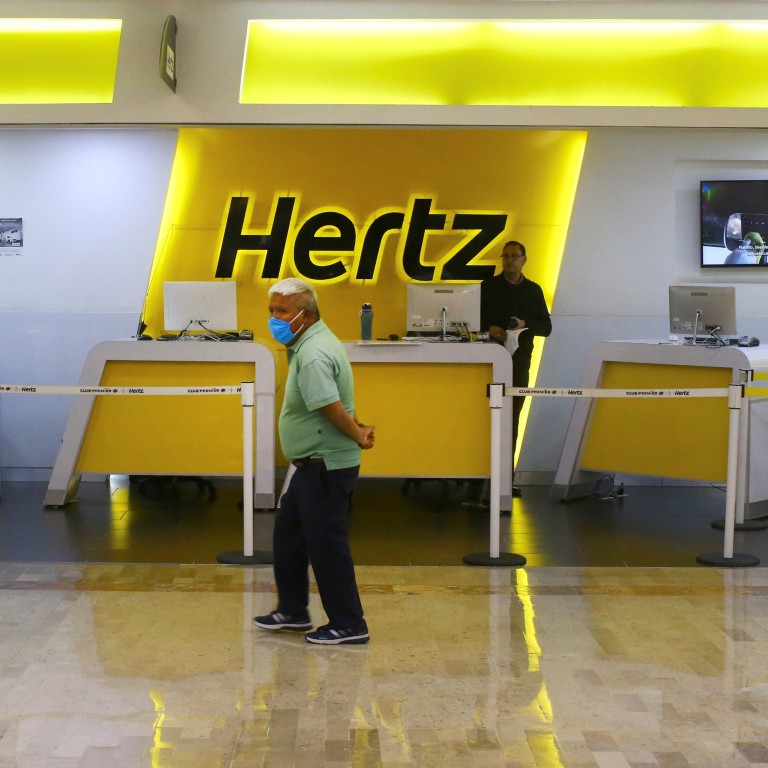
Stock markets: the folly of following sports punters betting on a quick economic recovery
- Stuck at home, more and more frustrated young people and first-time investors are turning to stocks. They tend to be much more bullish than institutional investors about the post-lockdown recovery, and are contributing to the market froth
The bullishness in financial markets in the face of the worst recession since the Great Depression shows no signs of abating.
On Tuesday, Bank of America published the findings of its latest fund manager survey, conducted earlier this month. It showed that investors have slashed their holdings of cash by the most since August 2009, are more upbeat about global growth and have increased their allocations to equities.
Yet, markets appear relatively unfazed. While the benchmark S&P 500 index plunged almost 6 per cent on June 11, revealing the fragility of the rally that began in late March, the massive liquidity injections provided by the world’s leading central banks are encouraging investors to take a glass-half-full view of the post-lockdown recovery.

01:58
Salmon import ban and partial lockdown for Beijing after new Covid-19 cases in Chinese capital
On Tuesday, the US Commerce Department reported that retail sales rebounded almost 18 per cent month on month in May, more than double analysts’ expectations. Citigroup’s US Economic Surprise Index, which measures the degree to which data comes in above or below expectations, has hit its highest level on record.
Markets are also choosing to focus on positive developments in the battle against the pandemic.
West shouldn’t fear Chinese cash, but welcome the peace dividend
More importantly, from a market standpoint, the shift in governments’ focus from suppressing the virus to restarting economic activity suggests that policymakers are much more likely to favour local lockdowns as opposed to the more draconian nationwide shutdowns implemented earlier this year.
Another reason sentiment is bullish – and the most surprising one, given all the talk about the disconnect between Wall Street and Main Street – is the sudden surge in the participation of retail investors in the US stock market.
The most prominent retail punter, and by far the most outspoken, is Dave Portnoy, the brash founder of sports blog Barstool Sports, who has 1.5 million followers on Twitter and was described as the “supreme leader” of retail investors in a recent report by HSBC.
In an interview with CNBC this week, Portnoy said Covid-19 “and everyone staying at home has changed the playing field. … We’re just doing something that the financial community hasn’t seen before, which is kinda making it fun … We’re ‘bar stooling’ it.”
Fed is damned if it unleashes more stimulus, and damned if it doesn’t
While retail investors, even as a group, are too small to sway markets, they are much more bullish than institutional investors about the post-lockdown recovery and are contributing to the market froth. Indeed, research by Goldman Sachs found that stocks preferred by retail punters have outperformed those favoured by hedge funds and mutual funds.
The problem, however, is that some of the stocks that have benefited most from the hefty inflows of retail investor money have been companies with the weakest balance sheets, and even those facing bankruptcy, such as car rental group Hertz. This is fuelling concerns about a “dash for trash”.
While it would be wrong to blame Portnoy and his ilk for the vulnerabilities in markets, the exuberance of retail shareholders is part of the reason why US stocks are priced for perfection. That this is happening at a time when global output is still contracting and Covid-19 infections are rising is deeply concerning.
As JPMorgan rightly noted in a report published last Friday, “ … even if governments do not reimpose lockdowns, private sector caution could still frustrate a budding recovery”.
The dramatic rally in global equities since March 23 – the MSCI All-Country World Index is up 37 per cent, less than 9 per cent shy of its all-time high – reflects expectations of a normal return to growth and corporate profitability.
Yet, it stands to reason that a resurgence in Covid-19 cases will further undermine confidence among businesses and consumers. Markets, particularly stock markets, continue to underestimate the fear factor.
While it is quite possible that the liquidity-driven rally has further to run, frustrated sports punters are hardly the best judge of where the virus-ravaged global economy is heading.
Nicholas Spiro is a partner at Lauressa Advisory

